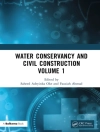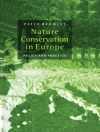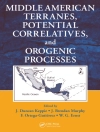This book explores urban environments and their impact on resilience, livability, climate adaptation, health, and societal well-being. It provides interdisciplinary insights for fostering resilient, livable, and sustainable cities prioritizing well-being and quality of life for all residents.
The book covers various topics and discusses innovative approaches for incorporating nature into urban planning. It also examines the relationships between diet diversity, food environments, and transportation systems.
Spatial analysis of noise contour maps based on traffic speed is conducted, along with an assessment of the impact of office environments on productivity. The book explores the influence of streetscapes on anxiety, envisions future cities from a youth perspective, and identifies critical factors affecting the design and use of elevated urban spaces.
Daylighting performance in school expansions is evaluated, and the concept ofa livable city is examined. Community adaptive capacity for climate-resilient development is assessed through a case study analysis. The livability of street vendors in different urban contexts is compared, and alternative perspectives on restorative environments are presented.
The book investigates the impact of urban refugees on cities and reevaluates scientific theories for human well-being-oriented built environments. It evaluates tourist satisfaction with urban railway systems and explores sport as a tool for healthy and sustainable cities.
قائمة المحتويات
Part 1: Urban Green Infrastructure and Climate Mitigation.- Part 2: Human Experience and Well-being in Urban Environments.- Part 3: Adaptation, Livelihood, and Social Dynamics.
عن المؤلف
Ilaria Pigliautile, Ph.D., is an assistant professor in Building Physics at the Engineering Department of the University of Perugia in Italy. Her research focuses on the intricate relationship between individuals and the built environment, examining this connection at various scales. Specifically, she explores theories of indoor comfort and investigates human responses to multi-domain stimuli, aiming to develop personalized comfort models that consider inter-individual differences. Additionally, she examines the impact of urban morphology and metabolism on both the environment and the well-being of citizens. As a passionate researcher, Ilaria Pigliautile strives to discover valuable solutions that propel our society toward the necessary green transition. Her work encompasses advancing technology while empowering individuals, particularly in the energy market. She actively promotes the establishment of energy communities and has gained extensive experience in this domain.
Cristina Piselli is Assistant Professor of Environmental Applied Physics at the Department of Architecture (DIDA), University of Florence, Italy. She holds a master degree in Building Engineering – Architecture from the University of Perugia, Italy, and a Ph D in Energy and Sustainable development from CIRIAF – Interuniversity Research Centre on Pollution and Environment “Mauro Felli”, University of Perugia, Italy. She works in the field of Environmental Applied Physics and Building Physics. She has participated in several national and international projects aimed at promoting the energy transition through building energy efficiency, environmental sustainability, and human wellbeing in the built environment, such as the H2020 INPATH-TES project, the H2020 ZERO- PLUS project, the H2020 SWS-HEATING project, the H2020 Geo Fit project, and the H2020 NRG2peers project. Moreover, she has been an expert member of IEA EBC Annex 79 – Occupant-Centric Building Design and Operation and IEA EBC Annex 66 – Definition and Simulation of Occupant Behavior in Buildings. Up to 2021, she was a member of the EAP Lab (Environmental Applied Physics Laboratory) research team at the University of Perugia, dealing with building energy efficiency and, specifically, occupant behavior and human comfort in the built environment, dynamic analysis of building energy performance, active and passive innovate solutions for building and communities energy efficiency and urban heat island mitigation, energy systems, and energy communities. She is continuing the collaboration with this group and research in these topics. She has been working on the applied research and tech transfer topics of (i) development and novel testing of new smart materials and energy systems for the built environment, (ii) human-centered design of indoors and outdoors through multidimensional comfort analysis and occupant behavior investigation, (iii) modeling and monitoring of buildings and districts for urban heat island mitigation and inter-building optimal operation, and (iv) refrigeration in the commercial sector.
Dr. Hirushie Karunathilake is an Assistant Professor at the University of Pittsburgh (Bradford Campus), United States. She was formerly a Senior Lecturer at the Department of Mechanical Engineering, University of Moratuwa, Sri Lanka. She received her BSc in Mechanical Engineering from the University of Moratuwa, in 2014, and obtained her Ph D in energy systems planning and decision making from the University of British Columbia, Canada in 2018. Her specialty is on developing risk-based decision support systems for energy and sustainability applications. She has experience in multidisciplinary research, industry collaborations, and national and international projects related to energy system planning, energy efficiency, climate policy, carbon capture, and sustainable product development, and she has authored many journal articles, conference papers, and book chapters in this area.
Claudia Fabiani – Assistant Professor – Department of Engineering – University of Perugia – Italy
Claudia Fabiani is currently Assistant Professor of Applied Physics at University of Perugia, Italy. With a notable body of work, she has authored more than 70 papers in international refereed journals. As a dedicated educator, Claudia also serves as a lecturer in Environmental Applied Physics and has provided guidance to over 20 master’s theses in the field of Building and Civil Engineering. In 2020 she got the national qualification as associate professor of Applied Physics. Her research focuses on energy efficiency, thermal-energy performance optimization in buildings, innovative analysis methods, continuous monitoring techniques, high albedo solutions for passive cooling, and the impact of local climate conditions on building thermal-energy behaviour, with a special emphasis on preserving cultural heritage through indoor-outdoor microclimate analysis.












